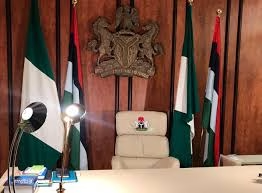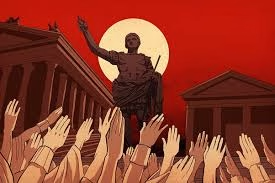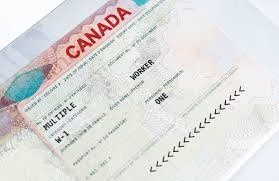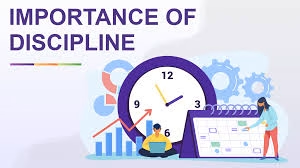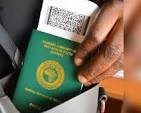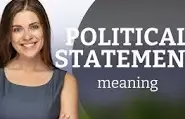
More Than Words,What’s the Full Meaning of a Political Statement? , It’s a Weapon
When someone says, “That was a political statement,” they usually mean it was crafted, cautious, clever, or calculated. But what does a political statement truly mean and why do these seemingly simple phrases stir so much drama, division, and distrust?
In Nigeria and globally, political statements are not just expressions. They are weapons, strategies, distractions, and sometimes bold acts of truth or deception. They can ignite protests, ruin reputations, spark revolutions, or buy politicians time to do absolutely nothing.
Let’s break it all down the real meaning, function, danger, and power of a political statement, especially in today’s volatile world.
So, What Exactly Is a Political Statement?

At its core, a political statement is any declaration spoken, written, implied, or symbolic that expresses a political position, belief, ideology, or critique. This could be about governance, power, justice, identity, economy, war, or policy.
But here’s the twist: it doesn’t have to be made by a politician. And it doesn’t even have to be true.
- When a government denies wrongdoing in a corruption scandal that’s a political statement.
- When an artist wears the Nigerian flag stained with blood on stage that’s a political statement.
- When a celebrity refuses to endorse a candidate even silence becomes a political statement.
In short: anything that sends a message about power or the system is political.
How Nigeria’s Entertainment Industry Works
Discipline Is the Most Dangerous Power in the World
Full Meaning of a Political Statement: Beyond Dictionary Definitions
Let’s go deeper than surface-level definitions. A political statement is:
1. A Position of Power
It tells the world where you stand. Whether pro-LGBTQ, anti-corruption, or “One Nigeria,” your words or actions make you an ally, a threat, or a sellout to someone.
2. A Shield
Politicians use political statements to deflect real questions:
“We are committed to transparency.”
Translation: We’re not answering your question.
3. A Trap
Sometimes, these statements are designed to bait reactions. Think of political dog whistles—phrases meant to sound neutral but signal bias to a specific audience.
4. A Smokescreen
Often, the loudest political statements are meant to distract you from what’s really happening behind closed doors. While Nigerians argued about same-sex marriage laws in 2014, our economy quietly started slipping toward recession.
Controversial take? Most political statements are not about clarity. They’re about control.
In Nigeria: Political Statements Are Survival Tools
In our Nigerian political culture, political statements are more than rhetoric. They are lifelines used to dodge probes, win elections, divide the masses, and protect elite interests.
Let’s analyze the Nigerian usage:
1. Denial as Statement
“I have no idea about the contract. I don’t sign cheques.” – A typical politician accused of fraud.
That’s a political statement dressed as ignorance. It’s plausible deniability. And the media eats it up.
2. Ethnic or Religious Appeal
“This is an attack on the North!” or “Christians must rise!”
These are dangerous political statements disguised as cultural identity. They can fuel division, trigger violence, and blind followers to the real issues.
3. Peace Messaging After Violence
“We condemn the killings and urge for peace.”
Another classic. While the bodies pile up, leaders respond with vague calls for peace without action. Why? Because it’s cheaper to release a statement than mobilize actual justice.
When Celebrities Make Political Statements
Entertainers, skit-makers, influencers today, everyone’s making political statements.
- Burna Boy’s Fela Kuti-like lyrics on corruption? Political.
- Falz’s “This Is Nigeria” music video? Political.
- Tiwa Savage refusing to perform at APC rallies? Political.
But here’s where it gets controversial:
Silence Is Also a Statement
Many Nigerian celebrities avoid commenting on politics to protect endorsements, visas, and fans. Yet in silence, they signal their priorities: money over justice.
Backlash Culture
When celebrities do speak out on police brutality, elections, or LGBTQ rights they’re attacked, threatened, or canceled. The system punishes public figures for thinking freely.
That’s why many opt for “safe activism” vague statements like:
“Let’s all do better as a country.”
Which says nothing but sounds nice enough to trend.
The Danger of Empty Political Statements
We must face a bitter truth: most political statements are hollow.
They are written by PR teams, approved by advisers, and released with no intent for follow-through. They’re often used for:
- Damage control after scandals.
- Manipulating emotions during elections.
- Dividing citizens while protecting the elite.
The real danger? We start believing words matter more than actions. That a viral apology or condolence message equals accountability.
It doesn’t.
The Social Media Factor: Political Statements Go Viral
In the digital era, one tweet can spark revolution or ruin a career. Politicians now tweet more than they govern.
- A single misinterpreted post can lead to tribal wars online.
- Fake accounts spread fake political statements to fuel chaos.
- Citizens don’t wait for official press releases anymore screenshots rule the narrative.
This means political statements are now less formal, more reactive, and increasingly weaponized. That’s terrifying and fascinating.
Why You Must Learn to Decode Political Statements
Don’t just read political statements. Read between them.
Here’s how to know if a statement is just noise:
- No names mentioned – Means no accountability.
- No timelines – Means no urgency.
- No data or specifics – Means no intention of change.
- Too many big words – It’s hiding something.
Instead of clapping for “condemnations” and “assurances,” ask:
“Where’s the action?”
Whatsnextng Word: In a Nation Ruled by Statements, Actions Are Revolutionary
Nigerians are now experts at reading the room, spotting spin, and sensing deception in real time. That’s progress.
But we must evolve further.
Let’s stop being impressed by well-crafted lies and start demanding uncomfortable truths.
Let’s stop sharing political statements like prophecies and start judging leaders by their results, not their words.
Because until that shift happens, we’ll remain a country governed by semantics over substance, and tweets over transformation.
